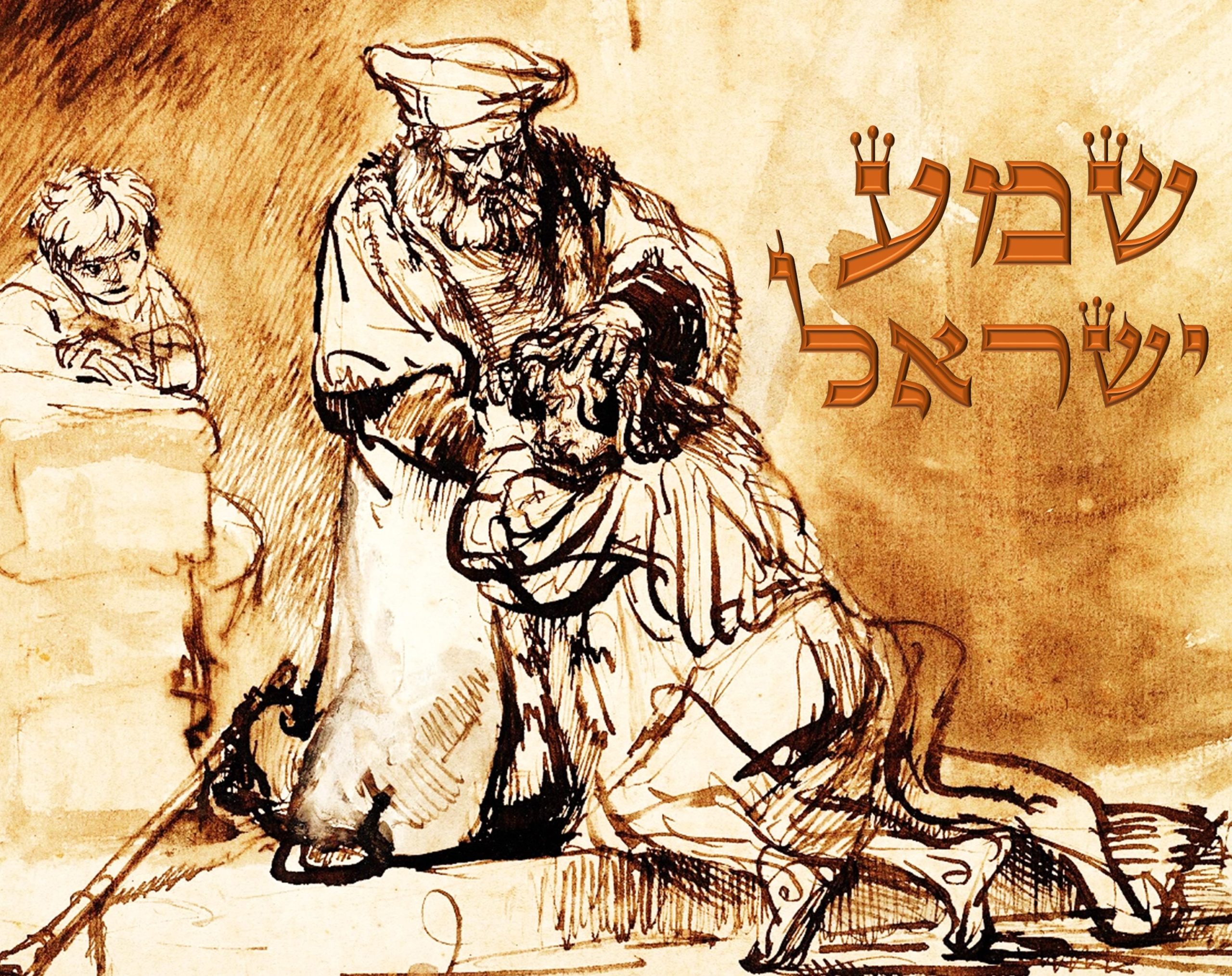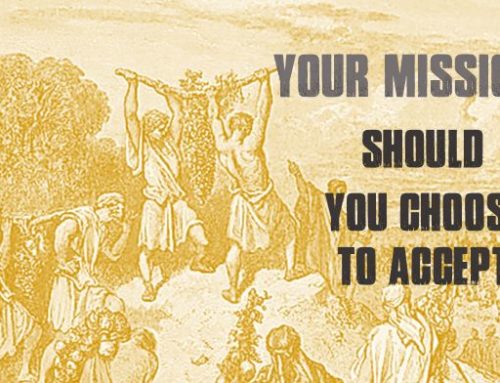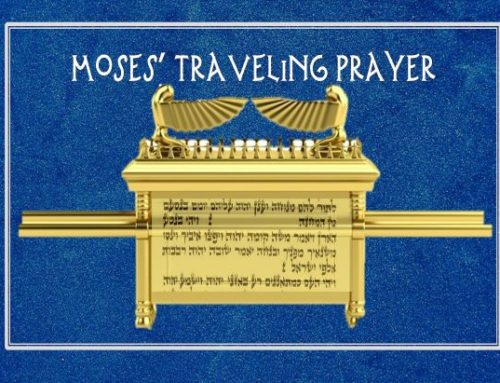Parashat Vaetchanan, Deuteronomy, 3.23-7.11, Isaiah 40.1-26
The name of our Torah Portion, “Vaetchanan”, means pleaded, implored, begged. Moses had just begun to see the wonders of the Lord and now he had come to the end without entering Canaan. “let me cross over and see the good land beyond the Jordan.” Deut. 3.25 NKJV The honor to lead Israel into the promise fell to Joshua, a type of Messiah, who leads us into the Kingdom. Moses gave a prophetic warning and promise of hope should Israel disobey the Ten Commandments and the ordinances and be taken into exile.
“But from there you will seek the Lord your God, and you will find Him if you seek Him with all your heart and with all your soul. When you are in distress, and all these things come upon you in the latter days, when you turn to the Lord your God and obey His voice (for the Lord your God is a merciful God), He will not forsake you nor destroy you, nor forget the covenant of your fathers which He swore to them.” Deuteronomy 4.29-31 NKJV
How can an exiled, idolatrous people, Deut. 4.28, find their way back? I believe the answer is found in the great prayer Moses gave to us later in our Torah Portion, “The Shema”.
“Hear, O Israel: The Lord our God, the Lord is one! You shall love the Lord your God with all your heart, with all your soul, and with all your strength.” Deut. 6.4 NKJV
In 2014, Breitbart News relayed a miraculous story. Several IDF soldiers were on a mission in Gaza to retrieve a soldier. Without going into detail, several of those soldiers entered a building looking for weapons and rockets. Suddenly they encountered a female suicide bomber ready to detonate her belt. One soldier instinctively shouted “Shema Yisrael”. The woman began to tremble, and in that moment of hesitation was subdued. Their lives were spared, and the woman was taken into custody. What happened when she heard the “Shema”? The article states her mother, a Jewish woman had married a Palestinian in Gaza. Her life had been unbearable with indoctrination, but this ancient prayer, the Shema, sown into her as a young child, shook her soul, saving the soldiers lives.
This prayer still cries out. It is a prayer not so much to our Creator, but to ourselves, that we might hear and be healed.
Yeshua’s Teaching on our Torah Portion
Yeshua considered the Shema the first or greatest commandment. The prodigal craving food of unclean beasts can come to a moment of reckoning where the call of our Heavenly Father rings out through the Heavens with our name attached – “Hear O Israel, the Lord our God, the Lord is One…” In these last days, people scattered in the world, lost souls serving idols, will “hear” (Shema) and “seek the Lord with all their “heart and with all their soul”. When asked by a scribe about the first commandment, Yeshua, pointed to this Torah Portion.
“The first the commandments is: ‘Hear, O Israel, the Lord our God, the Lord is one. And you shall love the Lord your God with all your heart, with all your soul, with all your mind, and with all your strength. ’This is the first commandment. And the second, like it, is this: ‘You shall love your neighbor as yourself.’ There is no other commandment greater than these.” So the scribe said to Him, “Well said, Teacher. You have spoken the truth, for there is one God, and there is no other but He. And to love Him with all the heart, with all the understanding, with all the soul, and with all the strength, and to love one’s neighbor as oneself, is more than all the whole burnt offerings and sacrifices.” Now when Jesus saw that he answered wisely, He said to him, “You are not far from the kingdom of God.” Mark 12. 28-34 NKJV
Maybe the cry of the Lord is speaking to you as you read these words. You may be looking for the way back. Let Yeshua’s admonition show you the way.
I. Hear O Israel
“Hear, O Israel: The Lord our God, the Lord is one!” Deut. 6.4 NKJV
That is spoken to you. It is resonating in your spirit because you belong to the Father. David implored us saying, “Do not harden your hearts, as in the rebellion, As in the day of trial in the wilderness” Ps. 95.8 NKJV Messiah said, “Behold, I stand at the door and knock. If anyone hears My voice and opens the door, I will come in to him and dine with him, and he with me.” Rev. 3. 20 NKJV The way home begins with hearing His voice.
II. Loving God
“You shall love the Lord your God with all your heart, with all your soul, and with all your strength.” Deut. 6.5 NKJV
Moses calls us to love God from three depths of our being, all our heart, soul, and strength. Some have seen in the temptation narrative of Yeshua a demonstration of fully loving God in each area. We cannot compartmentalize our lives, our politics, our profession from our love for God. And just as we cannot compartmentalize or love God in only one aspect or percentage of our lives, we cannot compartmentalize loving our neighbor.
III. Loving our Neighbor
“You shall love your neighbor as yourself.” Mark 12.31, Luke 10.27, Lev. 19.18
Mark’s Gospel presents Yeshua’s teaching on the Shema and loving God, by connecting it to Leviticus 19.18, “Love your neighbor as yourself.” Yeshua connected them using a hermeneutic method called Gezera Shava, whereby a repeated word or phrase in two portions of Scripture may show relation. In this case, the unique phrase, “V’Ahavta” et Adonai, “You shall love” the Lord, also appears in Lev. 19.18, “V’Ahavta” Lereiacha Kamocha, “You shall love” your neighbor as yourself. How can we love our neighbor? I return to the beginning of the Shema. “Hear O Israel, the Lord our God, the Lord is One.” This is a prayer for our neighbor’s ears, a cry to the wanderer, and a call for the prodigal – come home. But that cry must come from our lips!
Conclusion
The greatest command is to “Hear O Israel…”, a prayer not so much directed to God, but to the depths of our being, and to our neighbor – a command and yet a call. It is a call stirring the wanderer home. I grew up in a neighborhood that when six P.M. came, the voices of mothers would cry out the name of their children, saying “come home”. I knew the timbre of my mother’s voice. The Shema is that kind of cry, the very timbre of your loving Heavenly Father, and the Messiah our Savior calling us return “to the Lord your God and obey His voice for the Lord you God is a merciful God.”





I’ve been struggling with both of commandments lately and I ask your prayers about it. Great teaching. May G-d keep blessing you brother!